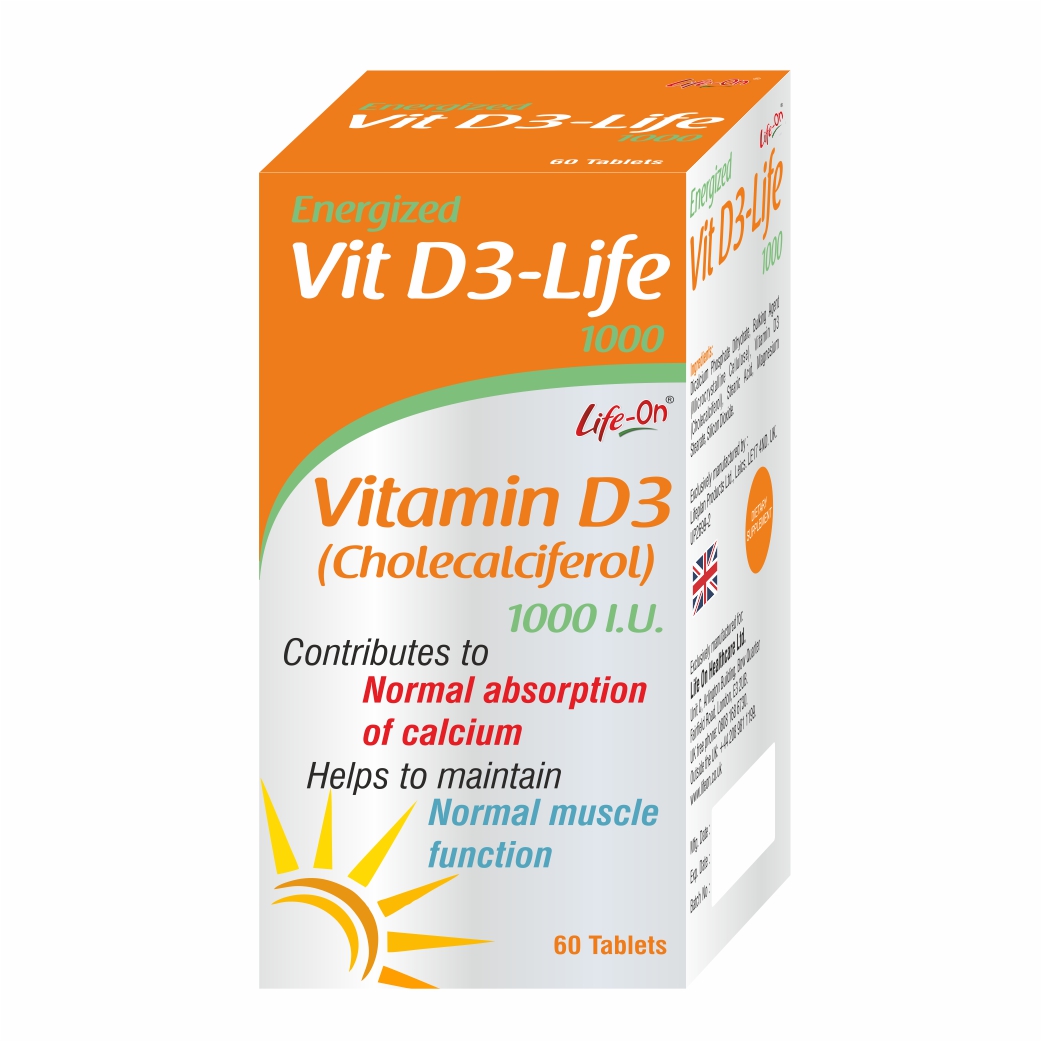

Product information
Vitamin D refers to a group of fat-soluble secosteroids responsible for enhancing intestinal absorption of calcium, iron, magnesium, phosphate and zinc. The most important compounds in this group are vitamin D3 (cholecalciferol) and vitamin D2 (Ergocalciferol). Cholecalciferol can be ingested from the diet and from supplements. Skin is the major natural source of the vitamin D(1). Vitamin D plays an important role in bone metabolism and seems to have anti-inflammatory and immune-modulating properties. Low vitamin D levels are associated with increased overall and cardiovascular mortality, cancer incidence, mortality and autoimmune diseases such as multiple sclerosis (2).
Vitamin D insufficiency affects almost 50% of the population worldwide. An estimated 1 billion people worldwide, across all ethnicities and age groups, have a vitamin D deficiency (VDD). This pandemic of hypovitaminosis D can mainly be attributed to lifestyle and environmental factors that reduce exposure to sunlight, which is required for Ultraviolet-B (UVB)-induced vitamin D production in the skin (3).
Vitamin D3 is manufactured in the skin by way of ultraviolet (UV) B rays. Vitamin D3 is synthesised from 7-dehydrocholesterol in the skin. The vitamin D binding protein transports the vitamin D3 to the liver where it undergoes hydroxylation to 25(OH)D (the inactive form of vitamin D) and then to the kidneys where it is hydroxylated by the enzyme 1 α hydroxylase to 1,25(OH)D, its active form (2).
Life On Vit D3-Life has a unique formula that contains Vitamin D3. Vitamin D also described as “the sun vitamin” is a steroid with hormone-like activity. It regulates the functions of over 200 genes and is essential for growth and development. Vitamin D3 deficiency can result in obesity, diabetes, hypertension, depression, fibromyalgia, chronic fatigue syndrome, osteoporosis and neuro-degenerative diseases including Alzheimer's disease (4).
Vitamin D decreases cell proliferation and increases cell differentiation, stops the growth of new blood vessels and has significant anti-inflammatory effects (3).
Vitamin D3 helps in maintaining normal blood calcium levels and promotes in absorption and utilisation of calcium and phosphorus and enhances the better functioning of the immune system (5).
Vitamin D3 is used for treating weak bones (osteoporosis), bone pain (osteomalacia), and bone loss taking Vitamin D (cholecalciferol) is effective for treating softening of the bones (6).
References
1.Vitamin D, en.wikipedia.org/wiki/Vitamin_D
2.Vitamin D: An Evidence-Based Review, www.jabfm.org/content/22/6/698.full
3.Vitamin D: The “sunshine” vitamin, J Pharmacol
Pharmacother. 2012 Apr-Jun; 3(2): 118–126.doi:10.4103/0976-500X.95506
4.Vitamin D Deficiency- An Ignored Epidemic, Int J Health Sci (Qassim). 2010 Jan; 4(1): V–VI.
5.Vitamin D, ec.europa.eu/nuhclaims
6.Vitamin D, https://www.webmd.com/vitamins-supplements/
